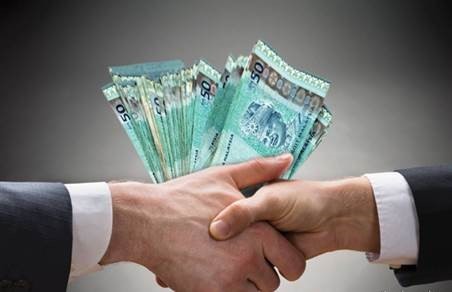
Image credit: The Edge Markets
KUALA LUMPUR, May 31 — The implementation of Section 17A of the Malaysian Anti-Corruption Act (MACC) 2009 in June 2020 clearly demonstrated the government’s commitment to combating corruption and abuse of power in a commercial organisation.
Malaysia-China Chamber of Commerce (MCCC) chairman Datuk Tan Yew Sing said it was difficult to stop such criminal activities but Section 17A was able to restrain people associated with commercial organisations from obtaining any benefits to the company.
He said awareness of corruption and abuse of power was also important to enhance the integrity and compliance with anti-corruption laws as well as manage the risk of corruption in the organisation.
“MCCC views the issue of corruption seriously and believes every problem in commercial organisations has to do with these criminal activities.
“Corruption not only damages one’s integrity but tarnishes the image of the country and undermines foreign investment which sees this crime can undermine the economic and political stability of the country.
“These criminal activities also lead to income inequality. The younger generation who want to be involved in a business will need to raise a large amount of business investment because the existing costs will increase due to the demand for bribes,” he told Bernama recently at the MCCC headquarters here.
He said the implementation of Section 17A made commercial organisations more responsible and practised anti-corruption principles among their staff to reject all forms of corruption when conducting their business.
“At MCCC, we also face challenges where some of us still do not fully understand how corrupt activities occur but as a company, we continue to educate every employee on what corruption is.
“The forms of corruption that we faced included gifts, cash, positions and even favours. If you go to have a meal with those who have something to do with your business, we (the company) will pay for the meal instead of them paying us to avoid bribery,” he said.
Tan also said if a company received a report related to the misconduct of its employees who were found to be involved in corruption, then the employee would face legal action including immediate dismissal.
He said the implementation of Section 17A will also be further strengthened by the Whistleblower Act where those who report any corrupt behaviour in the organisation are also protected under the law.
“Therefore, MCCC also conducts anti-corruption awareness and education campaigns in every commercial organisation and at the grassroots level such as in schools so that the new generation knows that corruption can bring down a country,” he said.
The media previously reported that Section 17A of the MACC Act 2009 (Amendment 2018) which came into force on June 1, 2020, would encourage business activities with integrity without corruption as well as promote good corporate governance practices.
Under Section 17A of the MACC Act 2009 (Amendment 2018), commercial organisations are also liable to punishment if their employees or associates are involved in corrupt activities.
Source: https://www.malaymail.com/news/malaysia/2022/05/31/malaysia-china-chamber-of-commerce-section-17a-implementation-shows-govt-commitment-to-combat-graft-in-private-sector/9874

